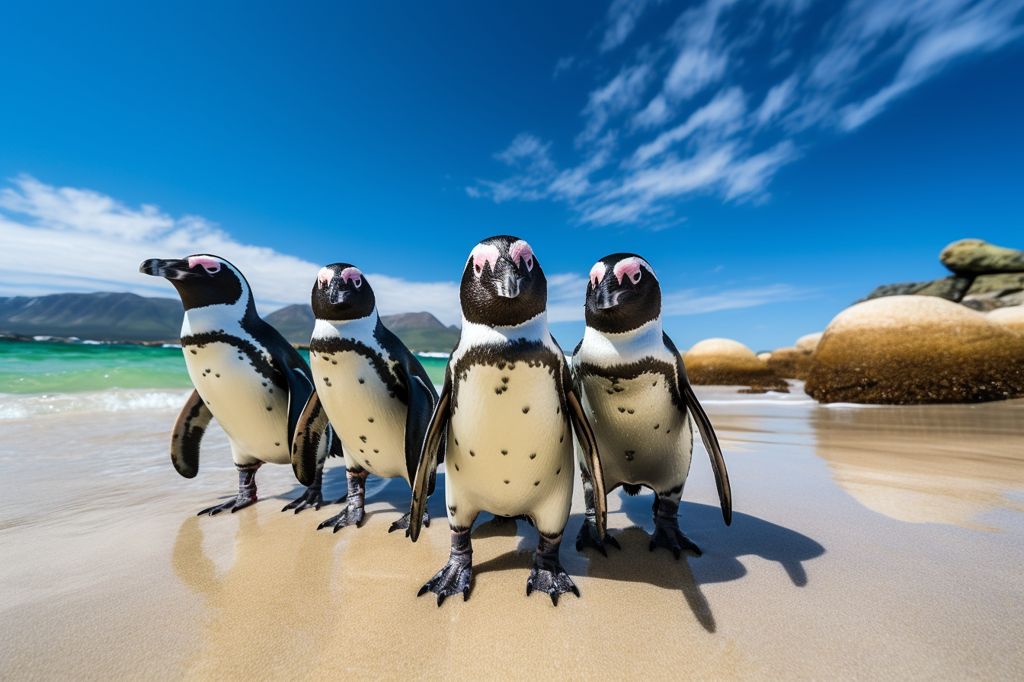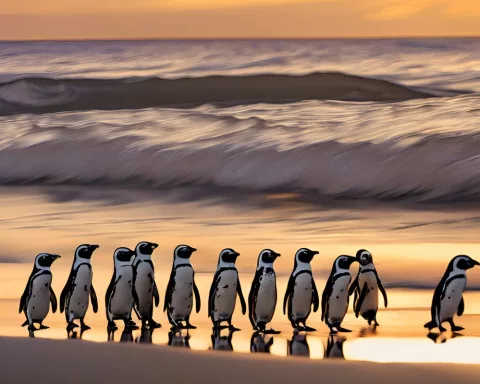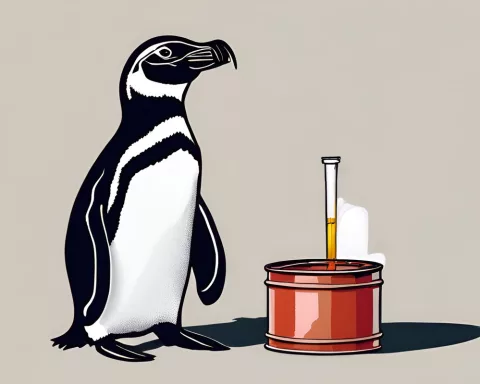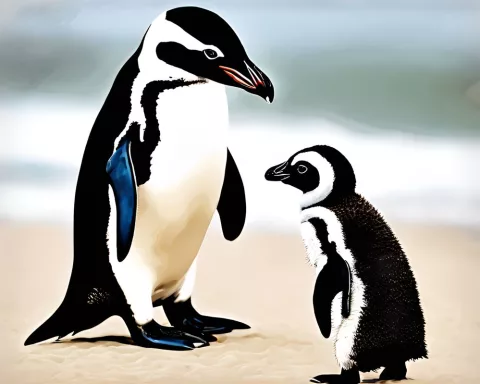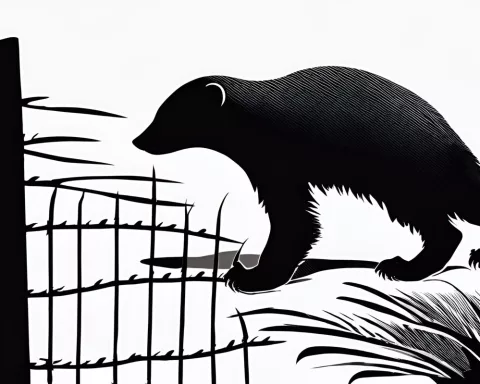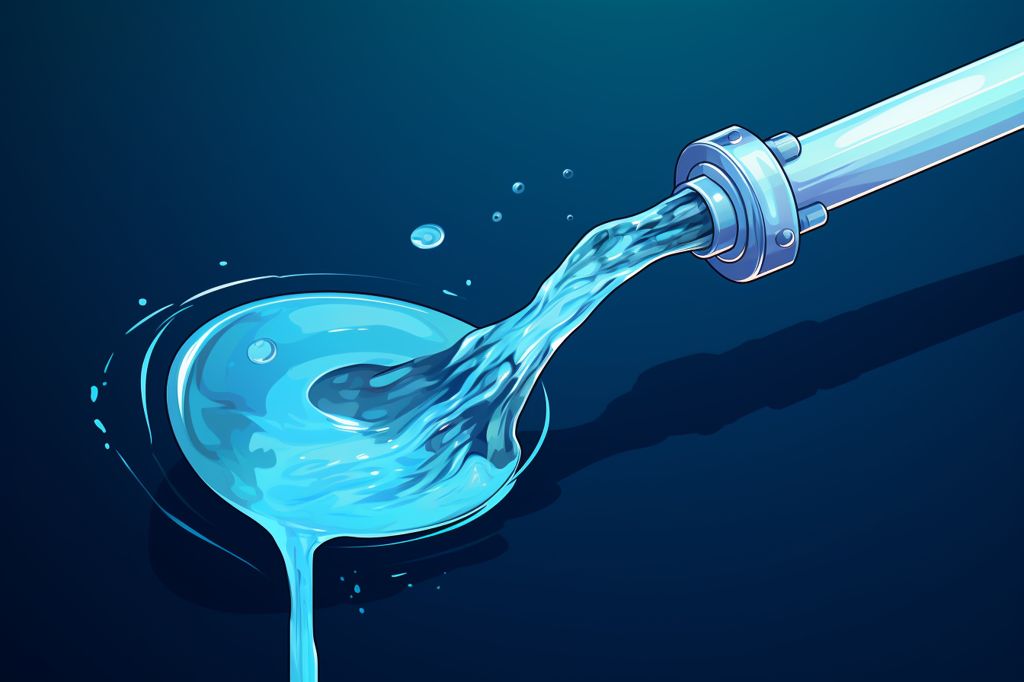African penguins are on the brink of extinction, and if current trends continue, more than 500 breeding pairs could disappear annually over the next decade. This decline has already caused the number of breeding pairs to plummet to under 11,000 since records began in 1979. By 2035, this could spell disaster for the species, wiping them out from their natural habitat.
Efforts to Save the African Penguin
The South African government’s recent efforts to maintain fishing closures around select African penguin colonies have failed to halt the decline. To combat this, the [Two Oceans Aquarium Foundation](https://capetown.today/the-two-oceans-marathon-a-celebration-of-running-and-beauty-in-cape-town) has launched the #NotOnOurWatch campaign (# NOOW), partnering with esteemed institutions such as the Florida Aquarium, the Georgia Aquarium, and Australia’s Zoo Victoria. This movement seeks to galvanize global support to prevent the African penguin’s extinction.
Dr. Judy Mann, executive of strategic projects at the Two Oceans Aquarium Foundation and president of the International Zoo Educators Association, declared, “Not on our watch will the African penguin go extinct in the wild.” The collaboration of fisheries, the South African government, oil and shipping companies, management agencies, scientists, conservationists, international allies, and the public forms the vital foundation to halt the decline in African penguin numbers.
The African Penguin’s Unique Position
The African penguin, native to the wild coasts of South Africa and Namibia, holds a unique position in urban coastal landscapes. Its endangered status on the International Union for Conservation of Nature (IUCN) Red List of Threatened Species has far-reaching consequences. The Boulders Beach colony near Cape Town risks losing a projected future expenditure of R6.87 billion and approximately 1,000 jobs. This excludes revenue and employment opportunities tied to colonies in the Western Cape and Eastern Cape provinces.
Challenges Facing the African Penguin
The #NOOW campaign aims to raise global awareness of the African penguin’s dire situation. Its goals include urging the South African government to implement stricter safeguards and regulations and rallying support from the conservation community. One significant challenge facing the African penguin is food scarcity, with dwindling fish numbers, particularly sardines, putting the birds in a desperate struggle for sustenance.
Additional factors exacerbating the African penguin’s plight include colony management, suitable breeding habitats, disease, predation by seals and gulls, and storms and flooding. Other looming threats include oil pollution near penguin colonies and increasing noise pollution, which negatively impact penguins and other marine life.
The #NOOW Campaign’s Call to Action
Despite the daunting circumstances, #NOOW campaign proponents remain resolute. Dr. Debborah Luke, Senior Vice President of Conservation at The Florida Aquarium, underscored the critical importance of the African Penguin Conservation Programme, acknowledging the real threat of extinction unless transformative actions are taken.
To inspire a global response, the #NOOW campaign has scheduled a worldwide waddle on 14 October, coinciding with International African Penguin Awareness Day. The event invites nature enthusiasts, individuals, sports clubs, businesses, conservation groups, communities, media outlets, and populations globally to participate in waddles and express solidarity using the #NOOW tag on social media. The campaign also encourages penguin enthusiasts to email words of encouragement to South Africa’s Minister of Forestry, Fisheries, and the Environment, Barbara Creecy.
As the battle to secure the African penguin’s future intensifies, the stakes have never been higher. The #NOOW campaign serves as a powerful call to action, and with the support of global advocates, positive change is not just a possibility—it’s an imperative.
The campaign maintains a presence on various social media platforms, such as Facebook, Instagram, and LinkedIn. By working together, we can help ensure that African penguins continue to thrive in their natural habitat.

